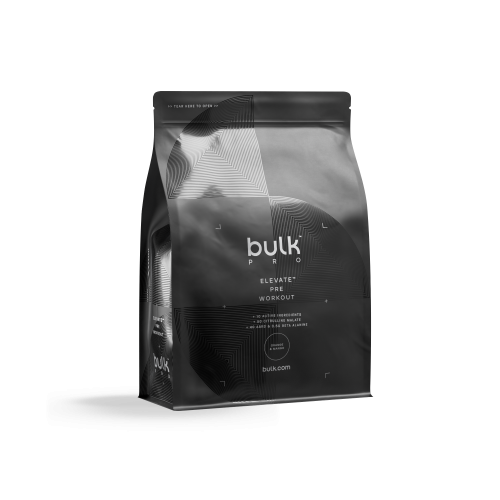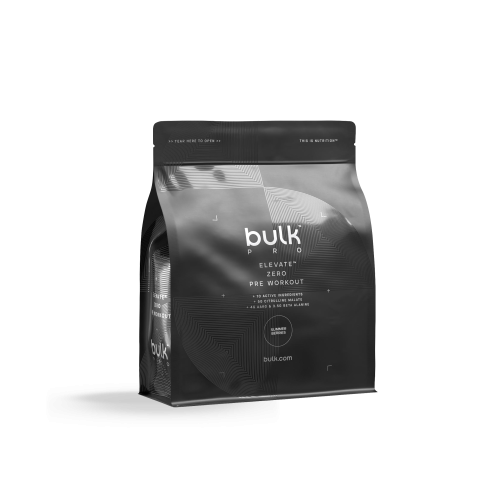Taurine is an amino acid occurring naturally in the body and in some foods. It is one of the most abundant ‘free’ amino acids circulating in the body, including in the brain, skeletal muscles and cardiac muscle. Taurine can be found naturally in certain animal-based foods such as meat, fish and eggs. This means that vegans and vegetarians might find it harder to get taurine in their diet.
What is it made of?
Taurine is synthesised in the pancreas from the amino acid cysteine. It contains sulphur, making it useful for a variety of bodily functions. It is a conditionally essential amino acid, meaning we might need to supplement if our needs exceed the body’s capacity to produce it.
What does it do?
Taurine has many functions. It plays an important role in muscle cell function due to its role in the movement of calcium ions. It also plays a role in energy metabolism and cell membrane stabilisation and also acts as an antioxidant (the process of preventing free radicals from damaging healthy cells), as well as helping to form bile salts, meaning it has a role to play in digestion as well.
Is it a protein?
Taurine is not a protein – it’s an amino acid, which is a chemical compound used by our body to build proteins.
When is the best time to take Taurine?
Taurine supplements have been shown to increase circulating plasma concentration of taurine, with levels peaking about an hour after ingestion. For this reason, taurine is best taken as a pre-workout, about an hour before the workout. Taurine supplementation has been associated with improvements in aerobic metabolism, physical performance and muscle function and recovery.
What are the benefits?
Taurine has a number of potential health benefits, including within sport and exercise.
May improve physical performance and muscle function
Studies have reported an improvement in aerobic performance measures (such as Time to Exhaustion) and anaerobic performance measures (such as strength and power increases) after supplementing taurine, as well as a decrease in delayed onset muscle soreness (DOMS).
Taurine supplements may also help to increase VO2 max outcomes and other endurance measures. This suggests that taurine supplements might be beneficial for bodybuilders or cardio-based athletes before a workout.
May improve cognitive function
Studies have shown that taurine can improve mental performance and cognitive function. Multiple animal studies have shown that taurine improves neuronal function and cognitive impairment in animals with brain damage.
In a study of older women, taurine supplements were able to improve brain health in combination with exercise by reducing inflammation and maintaining the integrity of the blood-brain barrier. This is important as the levels of taurine in our body decrease as we age.
Antioxidant activity
Taurine appears to act as an antioxidant, which could be useful during exercise, when cells are under oxidative stress. Taurine supplementation has been shown to decrease oxidative stress markers in humans, which is a promising sign. Because of this, it could help with skeletal muscle contraction during a workout, and promote recovery afterwards.
Studies are limited in this area, with most of the research being performed on animals or on very small, select groups of athletes. While the research looks promising, we need to do more to understand how taurine can be used by athletes in this way.
Is Taurine vegan?
Taurine found in supplements is synthetically developed and is generally safe for vegans to consume. Given that dietary sources of taurine are primarily animal-based, it might be useful for vegans to supplement taurine.
Taurine supplements
Taurine supplements come in a variety of forms, most commonly taurine powder, which is more easily absorbed. It can also be found in energy drinks. Here are our top picks for Taurine supplements to get you started.
Dosage
While the research is still mixed, taurine dosing appears to be effective at around 1–3 g per day, and taken around an hour before a workout for peak bioavailability. Performance improvements can be achieved without having to supplement taurine for a long period of time.
However, it has been shown that more highly trained athletes are more likely to have higher levels of taurine in their bodies. For this reason, supplementing taurine might make a bigger difference for untrained individuals, who will likely have lower taurine levels to begin with. Vegans and vegetarians who consume fewer animal products may also have lower levels of taurine. None of the research shows any negative side effects of supplementing taurine, but it’s always best to speak to your doctor if you’re unsure.
Taurine and energy drinks
You might be wondering why taurine is an ingredient in energy drinks. Studies suggest that taurine can improve cognitive function and mental performance through a variety of mechanisms, and might be even more effective when combined with caffeine in certain individuals.
To sum things up
Taurine is an amino acid that is easy to supplement as a pre-workout, offering potential improvements in muscle function, endurance and recovery. It also has strong antioxidant properties and has been to improve cognition and mental performance. You can find it in animal-based products, like meat, fish and dairy, in energy drinks, or as a supplement like Taurine Powder. If you’re looking to add something extra to your pre-workout, taurine could be exactly what you need. Let us know how you use Taurine by tagging #TeamBulk and @bulk in your social media posts. We want to hear from you!
References
- www.webmd.com/vitamins/ai/ingredientmono-1024/taurine
- www.mayoclinic.org/healthy-lifestyle/nutrition-and-healthy-eating/expert-answers/taurine/faq-20058177
- https://jissn.biomedcentral.com/articles/10.1186/s12970-021-00438-0










